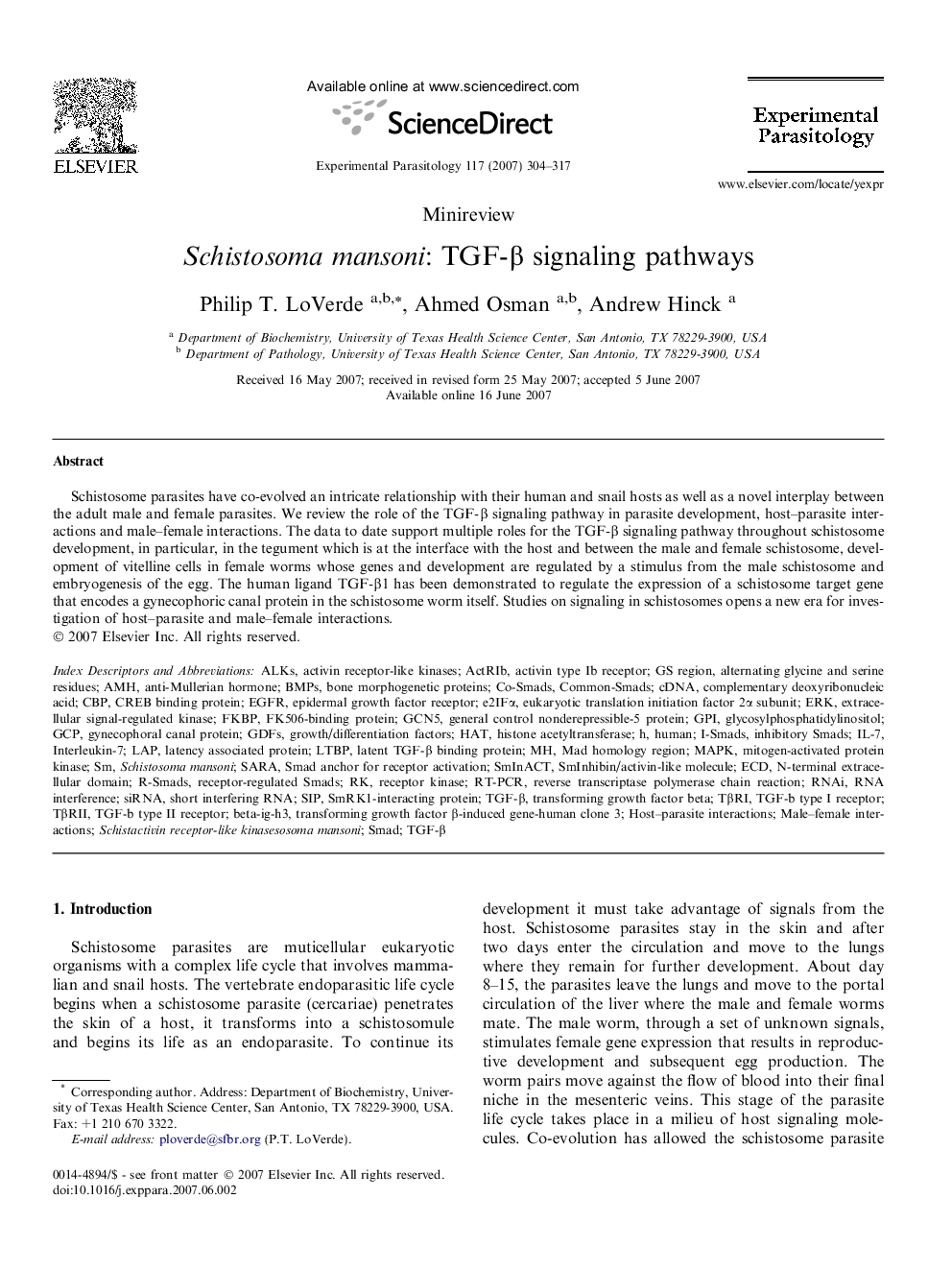| Article ID | Journal | Published Year | Pages | File Type |
|---|---|---|---|---|
| 4372002 | Experimental Parasitology | 2007 | 14 Pages |
Schistosome parasites have co-evolved an intricate relationship with their human and snail hosts as well as a novel interplay between the adult male and female parasites. We review the role of the TGF-β signaling pathway in parasite development, host–parasite interactions and male–female interactions. The data to date support multiple roles for the TGF-β signaling pathway throughout schistosome development, in particular, in the tegument which is at the interface with the host and between the male and female schistosome, development of vitelline cells in female worms whose genes and development are regulated by a stimulus from the male schistosome and embryogenesis of the egg. The human ligand TGF-β1 has been demonstrated to regulate the expression of a schistosome target gene that encodes a gynecophoric canal protein in the schistosome worm itself. Studies on signaling in schistosomes opens a new era for investigation of host–parasite and male–female interactions.
